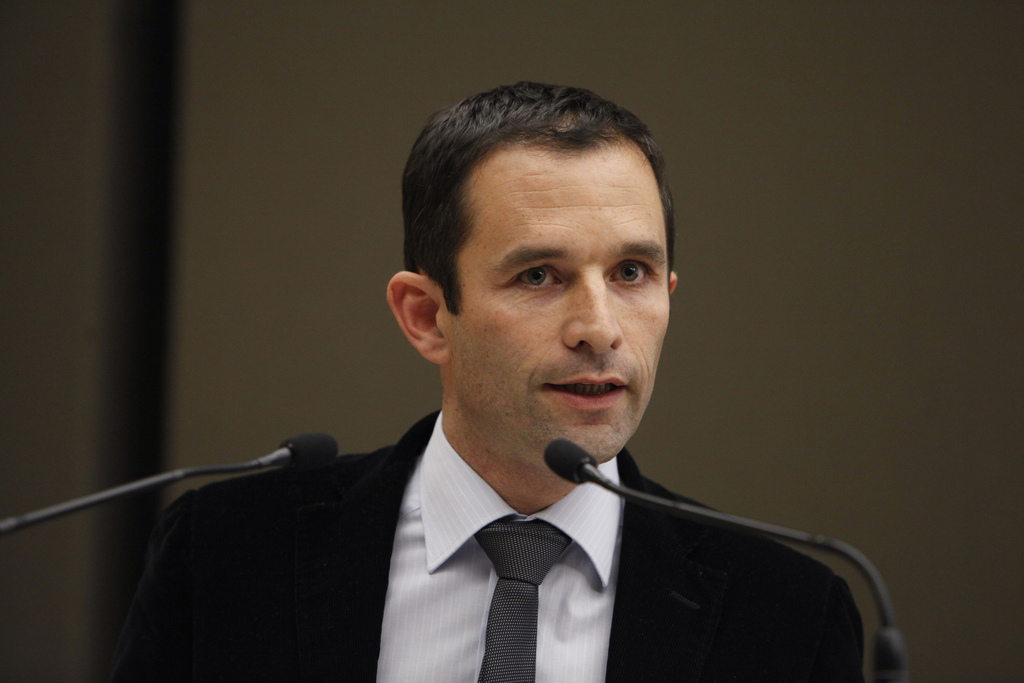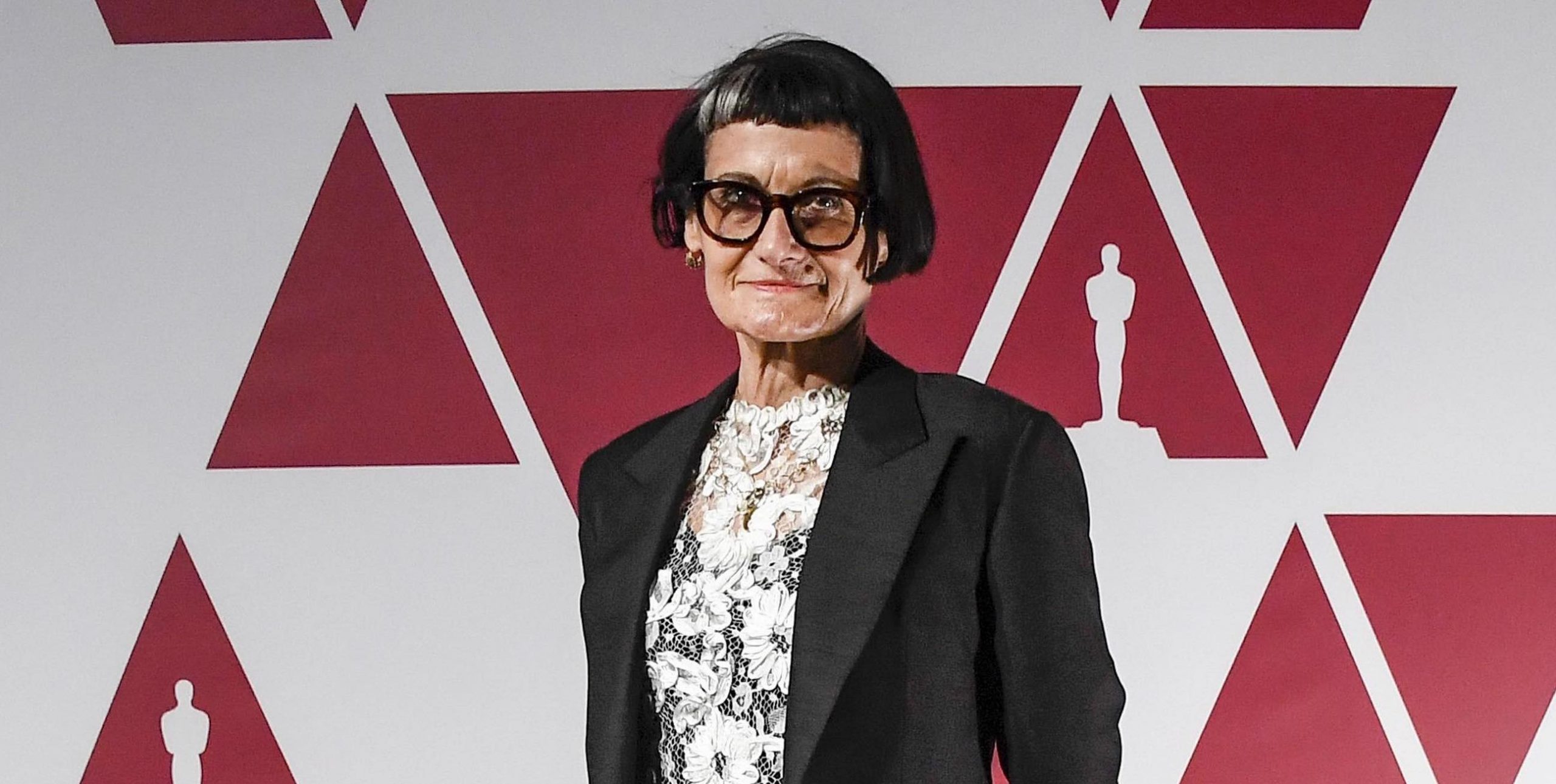
Faire Battre le coeur de la France: Benoit Hamon’s bid for French Presidency
I was told to open my bag, then my coat.
All the volunteers were wearing thick coats, and were all very young or very old. The Japy location for Benoit Hamon’s political meet could welcome about 2,500 people. When I got there, at seven thirty, it was about half-capacity.
On the first of December, François Hollande announced that he would not be running for a second term. In late autumn, Le Monde placed Mr. Hollande’s approval rating at 4%. Benoît Hamon is running for France’s left-wing primaries. Were he to win, he would be pitted against François Fillon, who represents the right wing party, Les Républicains, Marine Le Pen, leader of the Front National, our extreme right party, and communist party leader Jean-Luc Mélanchon. Both Fillon and Le Pen have declared their intent to revoke adoption for gay couples.
Another contender will be Emmanuel Macron, former Minister of Economy, Industry, and Digital Affairs, better known for his controversial economically neoliberal loi travail, also known as the Loi Macron. Mr. Macron decided to create his own party, En Marche in late August 2016, to transcend party lines. His website lists these key values: Loyalty, Work, Liberty.
As of now, in the primaries for the left-wing, the serious contenders are Manuel Valls, Hollande’s prime minister, who seems to stand strongest, followed by ex-minister for Industrial Renewal, Arnaud Montebourg. Mr. Montebourg announced on the 30th of December 2014 that he was retiring from politics. The same summer, Mr. Mélanchon announced a similar decision. And then, there is Benoît Hamon, ex Minister of Education.
The meet was supposed to start at eight. The venue was illuminated by red and blue lights. Generic upbeat music was playing. A prim man with a mic told us to occupy every seat, as they were expecting a lot of people. He introduced the present elected officials. There was the Loire, the Eleventh district of Paris, the Dou, the Moselle. He also told us to tweet and retweet the event, and gave us two hashtags: #Hamon2017, and #Japy.
The man took a deputy aside, and asked them what they expected from this meet. A woman said something about our hearts, and how we would surprise them all: on va créer la surprise. The reason why the woman said something about hearts is because of Hamon’s slogan: Faire Battre Le Coeur De La France. Make France’s heart beat.
Another speaker stressed that the campaigns was not led by big interest groups, and therefore needed to raise funds. The first man chuckled. “Not the most popular intervention, but it was necessary.”
The speeches would later draw numerous parallels between Mr. Hamon and Bernie Sanders, failed primary candidate to the American Democratic party. Anytime that would happen, a girl in front of me gleefully bobbed up and down in her chair, chanting the Vermont senator’s name.
There were many young people.
On va créer la surprise.
A remix of Justin Bieber’s “Sorry” started playing.
As of now, the polls go as such: On the 8th of December, Harris gave 45% Valls, 28% to Montebourg, and 11% to Hamon. On the 4th, Ifop had given 45% to Valls, 25% to Montebourg, and 15% to Hamon.
On va créer la surprise.
The crowd cheered.
As of now, polls testing how the left would do in our 2017 elections go as such, according to a 28th November Harris study:
François Fillon: 26%.
Marine Le Pen: 24%
Jean-Luc Mélanchon: 15%
Emmanuel Macron: 14%
Manuel Valls: 9%.
The man with the mic told us to clap along to the music. He wanted us to make some noise for Benoît. A young man in a tight suit distributed more placards along the aisles. The cameras were now fully set up.
To those who know the Socialist party, Mr. Hamon is a consistent player. To those who do not, he is some guy. Which is how Mr. Hamon both likes to introduce himself but also tries to distance himself of. He did not go through the ENA (where the large majority of our politicians come from), his campaign seems to rely on small funds.
Mr. Hamon is part of the frondeurs, a branch of the socialist party that turned against the government. When they violently opposed the Loi Macron, Mr. Hamon, Arnaud Montebourg, and Aurélie Filippeti triggered a government reshuffling in which they lost their ministerial positions, in 2014.
At the time, Hamon was Minister of Education. His time seems to have been lost among vague political entrenchments, he failed to integrate a gender equality module in French primary schools, and almost caused a national teacher strike Between 2012 and 2014, Mr. Hamon occupied a ministerial position devoted to Social Economy with an emphasis on solidarity.He encouraged greater competition between eyewear providers and more regulation on agricultural products.
Before that, he was deputy for the 11th district of the Yvelines, a small French region which neighbours Paris. After being shuffled out of the government, Mr. Hamon took back his seat as a deputy. During Mr. Hamon’s time in the government, he was represented by Jean-Philippe Mallé. Mr. Mallé voted against the Taubira law on gay marriage.
In my bag I found a flyer that had been handed to me by the communist party at the entrance. Their flyer attacked Hamon’s treatment of migrants in les Yvelines. They said that the Japy gym had been used in 1997 for a homeless strike. That it was used to detain Jews between 1941 and 1943.
The flyer seemed to find that parallel satisfying.
The man with the mic told us to clap again, and that Benoît was going to deliver a great speech. He said that we want to believe, and that we’re right to believe. That we’re going to get the Socialist’s heart going, and the French heart going.
He told us to hashtag.
We weren’t trending enough.
My phone buzzed. There was a new poll, conducted by Cevipof.
Fillon: 26-29%
Le Pen: 24-25%
Macron: 13-18%
Mélanchon: 13-14%
Valls (hypothetically): 11-12%
Montebourg (hypothetically): 7%
A following article recounted how the state of emergency in France was reconducted until July.
These facts were never addressed. Which is where the Bernie Sanders narrative comes in. Remember the article that said Bernie Sanders would’ve won, following Hilary Clinton’s defeat. Consider the revisionist history. That was the story Hamon was trying to implicitly tell at times. That because the expected choice would get it wrong, he would get it right. It is an easy story to tell. Of course, this parallel was never explicitly bridged. The narrative might be too bold, too naive. And yet it existed.
Mr. Hamon only arrived at 21:15. A video played, where a prominent feminist activist triggered a wave of applause. Mr. Hamon has declared himself to be opposed to measures facilitating surrogacy. A speaker tried to introduce the problem of ecology, but lost the room.
Before the candidate’s arrival, a second video was screened about Hamon’s campaign. Another parallel with Mr. Sanders was drawn. Mr. Hamon energetically declared that no Jew, woman, Muslim or homosexual should have to live in France in shame.
When Mr. Hamon walked in, there was scuffle of cameras. He was wearing a purple tie, and although I thought his suit was bordeaux, that was only the screens. In fact, he was wearing black. Some yelled allez Benoît. He smiled. He started his speech with “mes chers amis” (‘my dear friends’). I had not noticed until now that he had a slight lisp.
His first talking point focused on Aleppo and migrants. He spoke of our responsibility in the matter, and how Mr. Vallss told Angela Merkel not to welcome so many migrants. Mr. Valls, as you will remember, was the prime minister of a socialist government. Mr. Hamon cited socialist ex-President François Mitterrand’s courage in the Sarajevo siege, where Mr. Hamon described Mr. Mitterand risking stray bullets by interposing himself between the factions.
In 2009, archives concerning this period were declassified. It was shown that fearing the beginning of a new German power bloc, Mr. Mitterand had chosen to support Milosevic to embolden a strong Serbian state that would later ally itself to France. Mr. Mitterand never addressed the massacre of 120 000 Bosniac Muslims.
Mr. Hamon rightfully pointed out that Liban has a refugee for every two nationals. France’s own rate is 0.12 per cent. Mr. Hamon then quickly broached the idea of a long tradition of welcoming in France. No doubt was Mr. Hamon referring to events such as the publishing of Russian author Soljenistine’s The Gulag Archipelago in Christmas 1973.
No doubt Mr. Hamon was not referring to the fallout of the Algerian war, where thousands of panicked French nationals slept on Algerian docks, waiting for governmental action, from the months of April to August 1962.
Mr. Hamon then discussed his euroscepticism, underlining the inequality between territories in the Union, and the financial stranglehold on Greece. Mr. Hamon promised he would be soft-spoken, and that he did not believe in a strategy, in his words, of “broken dishes.”
Mr. Hamon then got his glasses out, and turned to how every presidential pamphlet since 1974 had mentioned the idea of getting us out of la crise, be it economic, social or moral. He promised to take away the loi Macron, and to create public policies which would anticipate work rarefaction in positions replaced by machines. One of Mr. Hamon’s key points on the notion of work was that labour laws were created by people who love to work. He noted that not all jobs allow for personal satisfaction, but at least guarantee a standard of living, and that these jobs must still be maintained.
This, of course, stands in direct opposition to most of the left wing’s conceit that education is the only way to individually fulfill oneself, leading to greater participation in the capitalist system. This has resulted in situations such as the Sorbonne hosting 400 students in their first year of English and American studies. Now in my fourth year, I can count about twenty people who were with me in first year. I remember discussing this with some friends and a friend’s mother. I spoke of the need to reduce class sizes to guarantee better educational standards, rather than operating through violent cuts every year where students must scramble for credit transfers in other universities. The response was unanimous: if we do not educate our whole population (meaning, through traditional academic training in texts such as Shakespeare, Edith Wharton, or the American Constitution) then what would these people do? How would they live?
Mr. Hamon spoke of the danger of a debate that was not between right and left, but right and wrong. While he was not particularly attached to the socialist party, new parties, he claimed, were the produce and promoters of demagogy, not democracy.
En Marche.
An old man next to me wheezed.
Mr. Hamon said that he would not have France be swept by the same wave which had submerged America, Poland, or Hungary. In the previous right-wing primary debates, from which François Fillon emerged largely victorious, when asked what they thought about Trump, the only candidate to express an opposition to his values was Nathalie Kosciusko-Morizet. Ms Kosciusko-Morizet received 2.56% of votes. She was also the only candidate that said she would call to vote for Hollande in the event of a Hollande-Le Pen standoff.
Mr. Hamon then said to resolve this issue, one needed to rely on youth, which he called: “des citoyens neuf”. ‘Neuf’ here can be translated as ‘new’, but implies the notion of fresh-out-of-the-box, like a new model. Mr. Hamon said he opposed notions that military music in schools or uniforms would instill a bit of reason in French students. His opponent, Mr. Montebourg, aims to create a six month military service against terrorism. The speech complimented itself many times for attracting youths, which are after all the basis of left-wing voters. The speech therefore patted itself on the back for meeting its expectations.
When looking at the petition asking for a second Brexit vote, the two districts in London that responded most strongly were Camden and Hackney, two youth culture strongholds.
Camden and Hackney were the two districts with the lowest turnout in the initial vote.
The question of Bernie Sanders.
The candidate started rushing through propositions, how minimum wage increased more during president Sarkozy’s term than president Hollande’s, and a walking cameraman’s light landed on me. I tried to appear less tired than I was. It was 22:20, and the candidate was approaching his most controversial ideas: first, the RUE, or revenu universel d’existence, meaning an amount of money given to every citizen in France over 18. When describing how he would finance this, Mr. Hamon first said it would allow for youths to have more flexibility in their career. Mr. Hamon then asked again how he would finance it, and told us that after World War II, the French state, despite being ruined, created our social security system. After World War II, France was awarded the Saar until 1956, an industrial stronghold filled with valuable resources, and kept mining for coal until 1981. Once again, Hamon asked the crowd how he was going to finance it. He said that the RSA, meaning unemployment benefits, would be increased by ten percent, and that the RUE would be given in 2018 to everybody aged 18-25. The crowd cheered. Mr. Hamon asked how he was going to finance it again. More fairness on our income tax, a reform of patrimony taxes, and a tax on robots. No numbers were given. Bernie Sanders was mentioned again.
Another controversial proposition touched on the subject of democracy. He said foreigners should get to vote in local elections. A chant started. He also said we should disclose the amount of blank votes. He then spoke of the 49.3 citizenship law. The 49.3 law which already exists is used to rush measures through parliament without popular support. Manuel Valls used this measure six times. Mr. Valls came out on the 14th December to call for the repeal of this law.
Mr. Hamon, therefore poking fun at his opponent, sees the citizenship 49.3 as the radical opposite. Were a law to arrive on the floor, and were a petition to be signed by one per cent of the French electorate (450,000 people) then the law would become a popular referendum. At the time of the loi Taubira on gay marriage, in 2013, the Ifop and the BVA reported that fifty-four per cent and fifty-five percent of the French population were opposed to gay marriage mere days before the law was passed.
Mr. Hamon rushed through more propositions, as at this point it was well past eleven. He did not have time to speak about education, put on his glasses, and I got up and stood by the door. I was about to fall asleep, and did not want to wait for everybody to leave so that I could access the metro. Mr. Hamon spoke of inequalities and discrimination on job access and how it factored in terrorism, attacked the government’s policy on the burkini, he spoke of burnouts, of proximity police, of hospital staffs and diapers are only changed every eight hours and not four in nursing homes, of his support for euthanasia. He spoke about how he had no vendetta against a certain group or against life itself. He said he would not engage in pointed attacks. He listed the number of people he disagreed with, on the left and on the right. He closed with Camus’ invincible summer.
The cameras flickered, and music started playing again. This time, it was Macklemore’s “Can’t Hold Us”. There was no time for questions
Mr. Hamon has proven himself to be a potent third man in this race for the primary. His rhetoric of distance from the party system seemed Trumpian or Sandersian. His platform on ecology guarantees low public interest. His emphasis on controversial hyper-interventionist measures tailored for young voters will also ensure his failure.
Mr. Hamon seems to have learned from Remain and Hillary supporters by refusing to simply react to conservative attacks, or attack their supporter’s characters. His strong stance on immigration and discrimination will appeal to a certain type of urban voters. The more disconnected ones will vote green, while those who want to avoid the issue of intersectionalism altogether will rally with Mélanchon.
Mr. Hamon will not be elected. Many will cite the polls getting everything wrong this year. The thing the polls did not get wrong was that Martin O’Malley did not snatch the Democratic nomination, and neither did Carly Fiorina with the Republicans. Why Mr. Hamon will fail is perhaps due to a general context of discontent where the notion of the RUE seems almost obscene. It will perhaps be because the Socialists have proven themselves to be incapable of governing, and even their detractors look sadly amateur at this time. It will perhaps be because Hamon’s narrative is reluctant, almost non-existent, or in any case, unclear. He does not seem to want to emphasize his position as an outsider, both a frondeur both also absent from the ENA. He does not seem to want to call himself the French Bernie Sanders, which would rather draw vague associations. He does not seem like your average Joe, but he is not a political shark either.
The next day, I went out with my friends. As we put down our cocktails on the table, my mother sent me a text: They talked about the meeting in the Quotidien. They said it was too long.
Photo: Philippe Grangeaud/Solfe Communications







